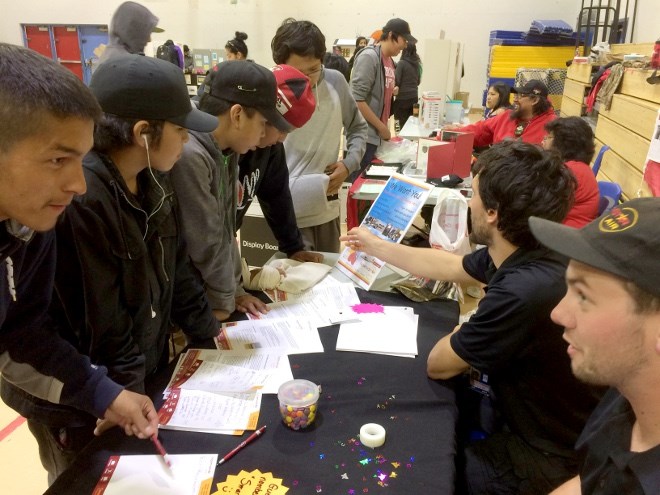There is a concern that when Indigenous youth learn a trade that they are forced to leave home to find a job.
One Thunder Bay-based air service is making it much easier for young people to learn skills, stay close to home, and even help their communities flourish by providing a critical service.
The long-term plan is to encourage aviation as a career choice way before high school as a means to attract more people into the industry.
North Star Air encourages anyone with an interest in aviation to apply. But when it comes to the remote and fly-in communities they partner with and serve, the air carrier pays special attention to getting young Indigenous people to sign up with the incentive of having a well-paying, rewarding career that they don't have to leave home for.
“There will always be those who will go other places, move on to other airlines, but we give them the option to stay in the North, live in their home communities, fly their families and friends, and give their communities a valuable service,” said Karen Matson, community relations officer for North Star Air and coordinator for the outreach program.
The company has been invited to many career fairs held in remote communities and schools.
The outreach team usually consists of Matson, one or two pilots, a ground crew member, and sometimes a member of administration, to show the diversity of jobs in aviation.
Often it's the pilots who are the stars.
“The students crowd around them and are in awe of the pilots, they swarm them,” she said. “They want to know what it's like to fly.”
The pilots that Matson speaks with tell her, besides the perks of work-life balance, many can go home and spend weeks with their families, not to mention flying to different parts of the country and the world.
North Star Air is taking it one step further. Starting this year, the company will be offering a bursary or scholarship program.
Matson said they have been in talks with Confederation College to work out the best option.
There are also plans to give presentations to elementary school students to show them what they need to do to prepare for a career in aviation. No matter what branch of aviation they choose, she said they all require basic skills like math to qualify.
Matson said Lakehead Public Schools is already reaching out to students in Grade 7 and 8, encouraging them to think about their future career choices, so by the time they get to high school they are already taking the proper courses to get them into college.
“No matter what, it's a huge plus for us because of the shortage of pilots globally,” she said.
Overall, encouraging aviation careers helps keep young people in school and on the path to graduate. This is critical for remote communities, Matson said, where dropout rates are high due in part to lack of motivation and jobs in their communities.
Matson related the number of times she's been to remote communities, where decent housing can be in short supply and basics like clean drinking water and reliable electricity are not available.
Getting students to think about how a high-demand career can give them a stable base to improve their situation and their communities, she said.




